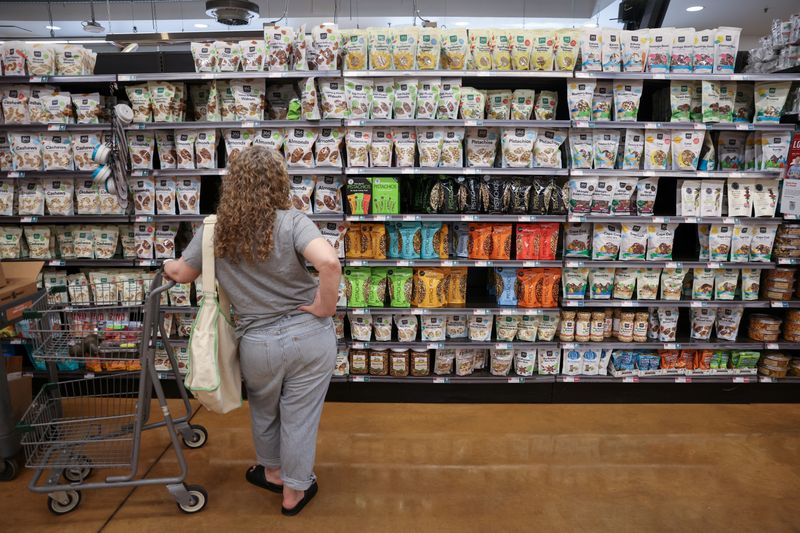By Richa Naidu
LONDON (Reuters) - Consumer goods giants including Nestle, Kraft Heinz (NASDAQ:KHC) and Reckitt are likely to report weak second-quarter sales growth from Europe and the United States, as consumers opt for brands that have been better at slowing price hikes, Nielsen data shows.
Analysts and investors have voiced concerns for several quarters about food, beauty and household products makers not being able to win back shoppers they alienated when they hiked prices for over two years in the wake of the pandemic.
The inflation sparked a global cost-of-living crisis, with increases in North America spreading to Europe and the rest of the world.
The ability to cut prices - or keep them in check - across the consumer and food sector is determining which companies report better sales, increase market share and protect margins.
Sales volume and margin growth will be the key performance indicators this quarter, with product innovation also a priority, Barclays analyst Warren Ackerman said. Less affluent U.S. consumers remained under pressure, he added.
" Unilever (LON:ULVR) and Danone look to have volume momentum but questions remain at Nestle," Ackerman said.
Nestle in April missed first-quarter organic sales growth estimates, as the world's biggest packaged food company continued to hike prices and therefore sold fewer products, particularly in North America.
Sales in stores in Europe at companies including Reckitt, Kellogg (NYSE:K) and P&G are estimated to have declined in dollar terms in each of the past three months, according to Nielsen data analysed by Barclays.
Similarly, Reckitt, Nestle and Henkel are expected to report lower U.S. store sales for the quarter and smaller market share in several categories, the data shows.
PRIVATE LABEL COMPETITION
PepsiCo (NASDAQ:PEP) missed expectations for second-quarter revenue last week as a series of price hikes and competition from private label brands slowed sales of its snacks and soda mainly in the United States, its largest market.
"As some competitors, particularly private label, have grown their market share, in a lower price environment it will be interesting to see if branded consumer products can improve their market share," said Tineke Frikkee, a portfolio manager at Waverton Investment Management, which invests in Unilever and Reckitt.
"Unilever particularly has stated it wishes to regain some lost market share. This can be through lower pricing, but often is more indirect through promotions, like 2-for-the-price-of-1 etcetera," she added.
The Nielsen data estimates Danone, Kellogg and Unilever store sales mostly rose in Europe and the United States during the quarter to the end of June, with Unilever helped by growth in household and personal goods even as its food brands - which include Knorr soup and Ben & Jerry's ice cream - lost ground to cheaper rivals.
Unilever is in the midst of a drive to improve productivity to try to revive growth after several quarters of underperformance. It told senior executives last week that as many as 3,200 roles would be cut in Europe by the end of 2025.
Barclay's Ackerman said it was a "complicated picture" in the rest of the world.

"In general consumers are feeling stressed and being more choiceful about spending," Ackerman added. "They are hunkering down and reducing food waste. Trips to restaurants are down which in theory should help in-home food consumption."
($1 = 0.7701 pounds)